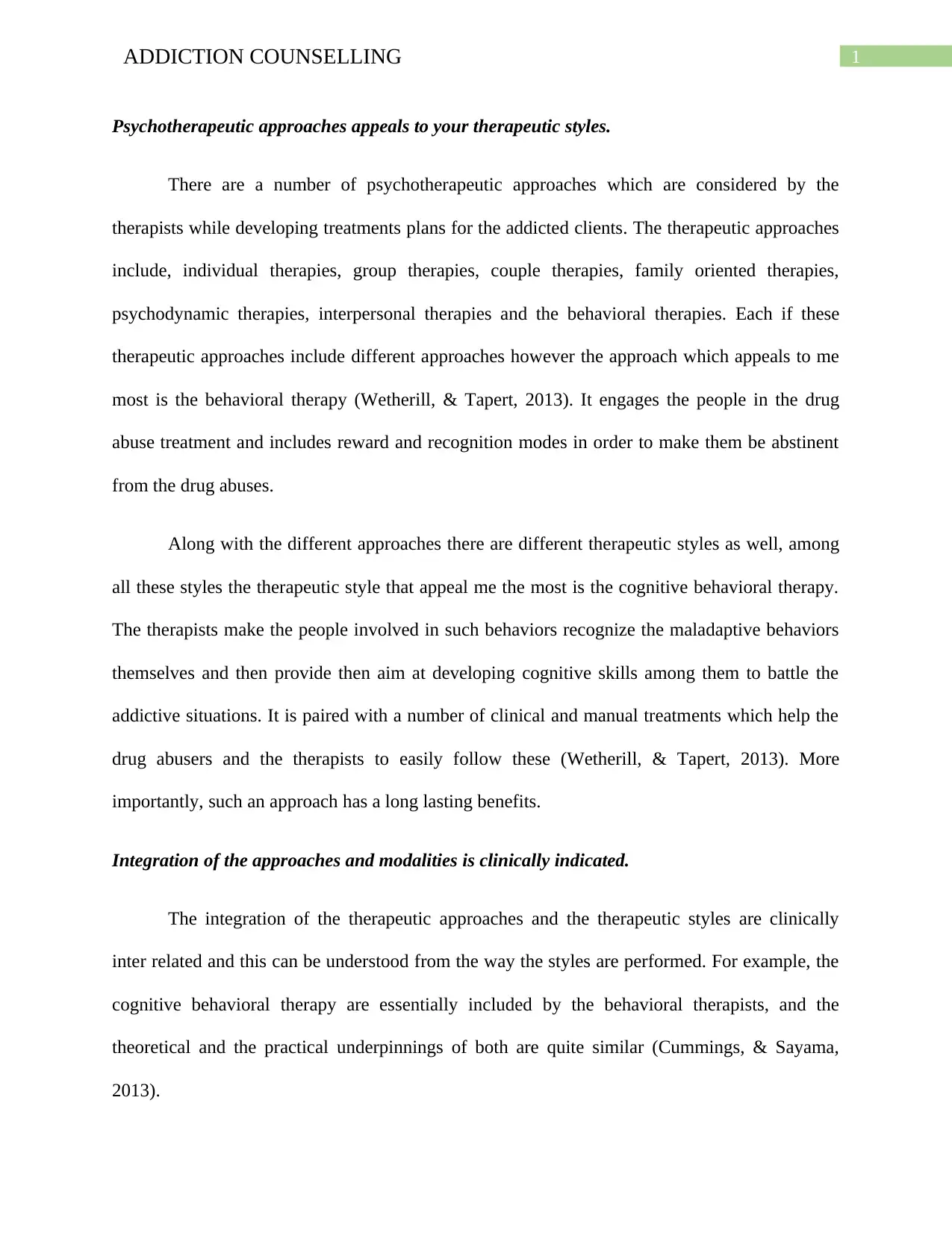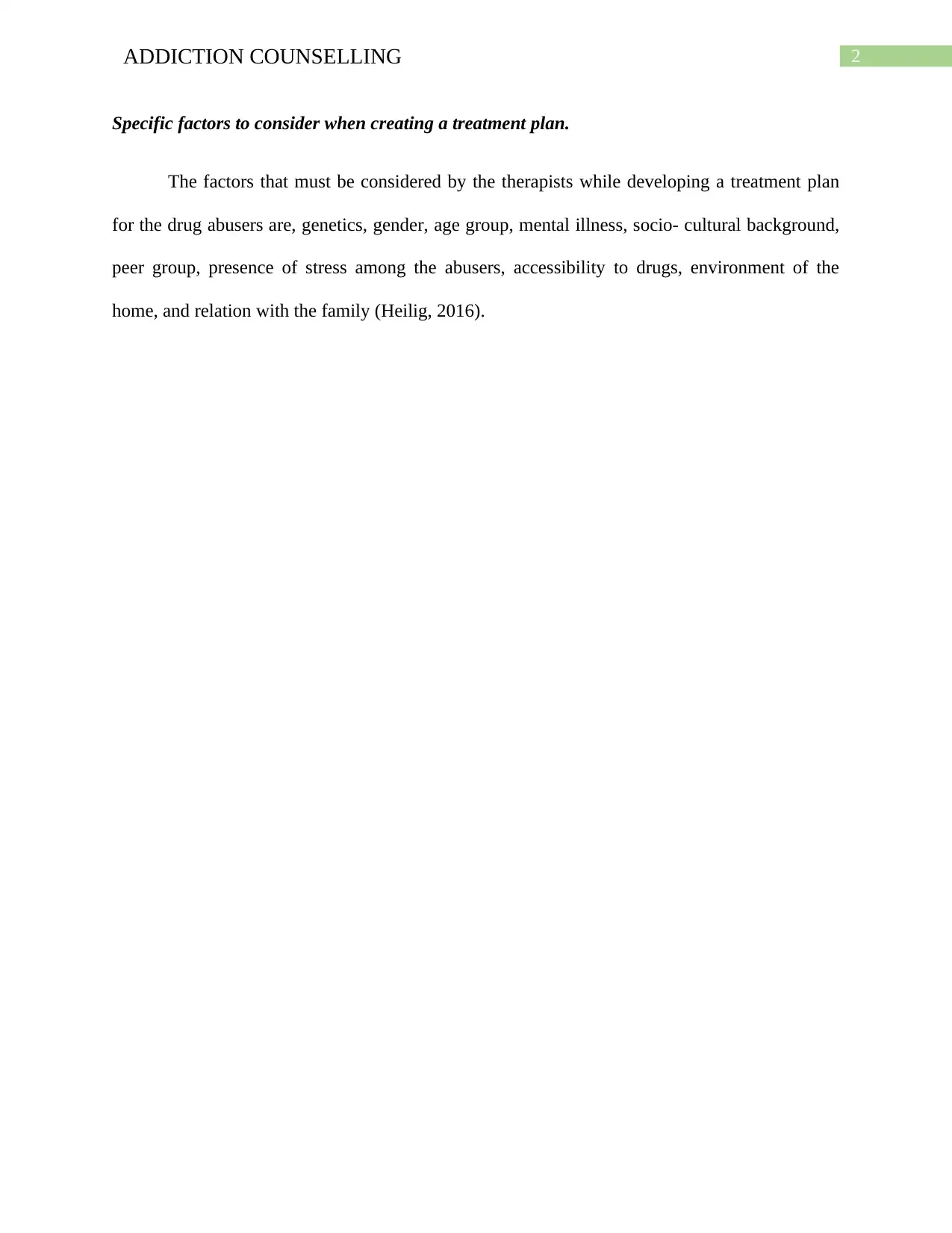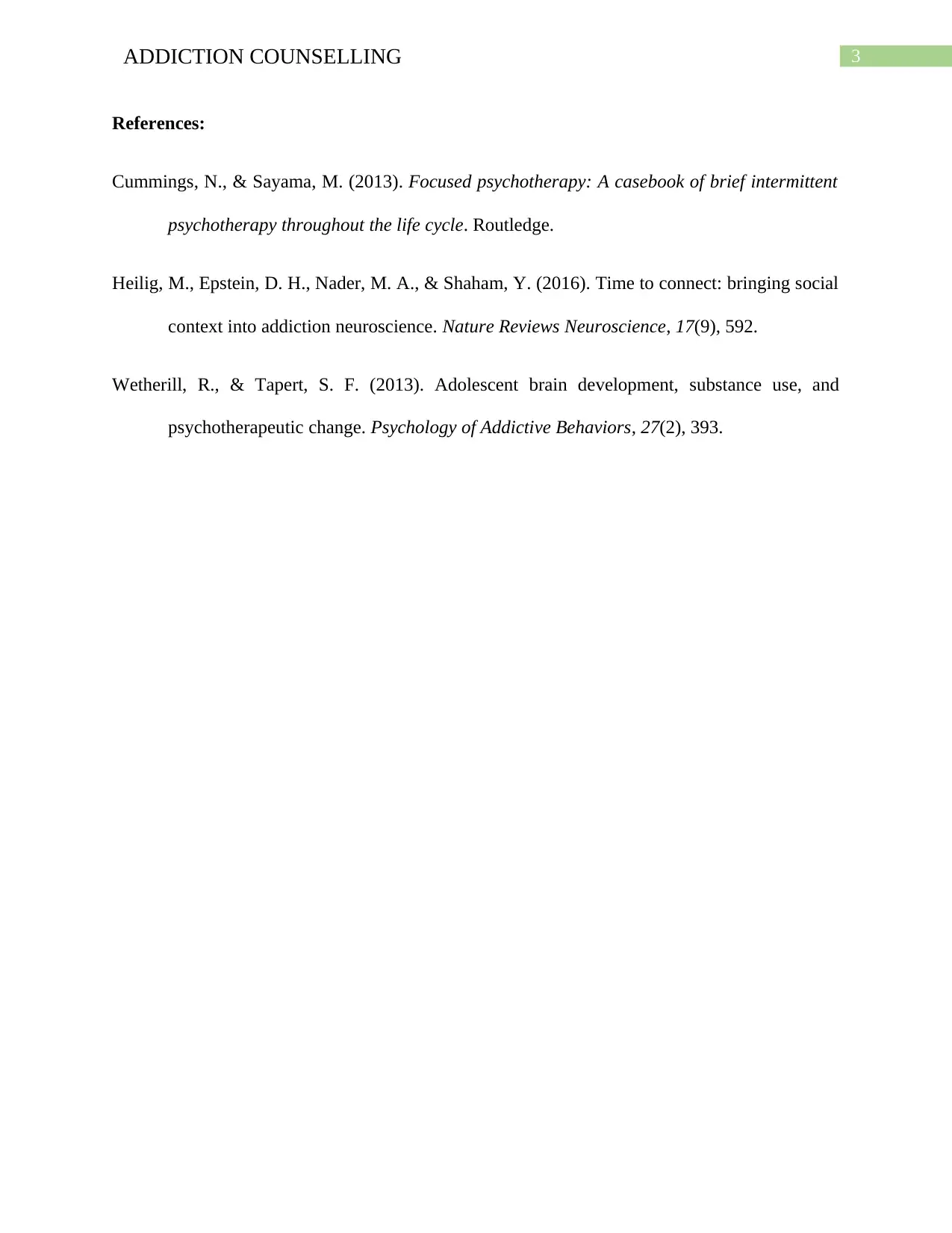Addiction Counselling: Approaches, Treatment Plans and Strategies
VerifiedAdded on 2022/08/15
|4
|489
|44
Report
AI Summary
This report examines addiction counselling, focusing on various therapeutic approaches and treatment plans. It explores the application of behavioral therapy, cognitive behavioral therapy, and the integration of different therapeutic styles. The report highlights the importance of considering factors like genetics, gender, age, mental illness, and socio-cultural background when developing treatment plans for drug abusers. The author emphasizes the benefits of cognitive behavioral therapy and the need to understand the interplay between different therapeutic approaches for effective intervention. The report also references key literature that supports the discussed concepts.
1 out of 4











![[object Object]](/_next/static/media/star-bottom.7253800d.svg)